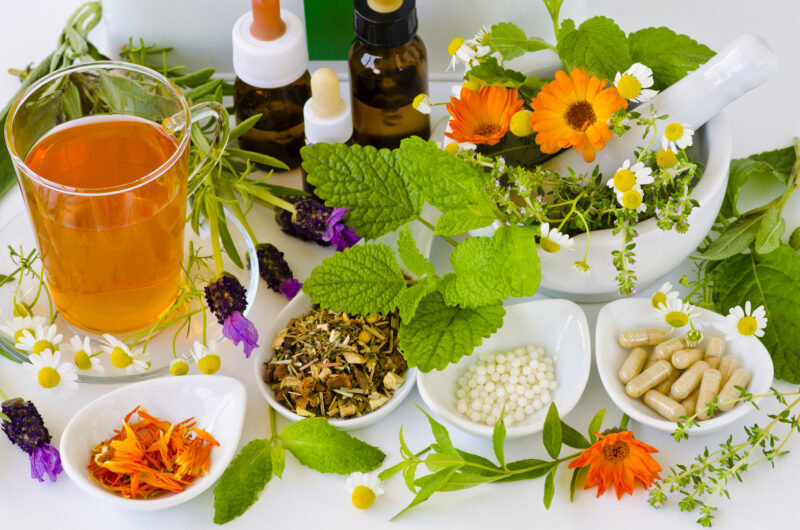
Wellhealthorganic Home Remedies Tag: Exploring Health and Wellness Alternatives
Wellhealthorganic Home Remedies Tag: In the realm of health and wellness, individuals are increasingly seeking complementary approaches to conventional medicine. Traditional remedies, deeply ingrained in human culture, often lack scientific validation, necessitating cautious exploration. In Wellhealthorganic Home Remedies Tag comprehensive guide, we will delve into various home remedies and strategies to maintain a healthy living environment, always emphasizing the importance of consultation with healthcare professionals.
Wellhealthorganic Home Remedies Tag
Peppermint: Time-Tested Soothing Solution
Peppermint, revered for its aromatic charm and medicinal attributes, has been a go-to remedy for generations. Some individuals find relief from headaches and irritable bowel syndrome through the use of peppermint oil. While certain studies support its efficacy, it is imperative to approach its inclusion in one’s routine with care, considering the limited scientific data available.
Honey: Nature’s Sweet Soother
Often lauded as a natural sweetener, honey is believed by some to alleviate coughs, especially in children without access to over-the-counter remedies. However, caution is advised, particularly for infants under one year old due to the rare but severe risk of food poisoning. Scientific evidence supporting the use of local honey to ease allergies remains inconclusive.
Also Read : Wellhealth how to build muscle tag
Turmeric: The Golden Panacea
Turmeric’s anti-inflammatory properties contribute to its multifaceted health benefits. While limited evidence supports its potential in treating skin rashes and ulcers, early trials show promise in managing arthritis and related conditions. Caution is warranted, especially with high doses, as gastrointestinal issues may arise.
Ginger: Ancient Remedy for Modern Ailments
Long valued in traditional Asian medicine, ginger serves various purposes, including relieving nausea and stomachaches. Despite promising studies on its efficacy against nausea and vomiting, not everyone can safely incorporate ginger into their routine due to potential adverse effects, necessitating consultation with a healthcare provider.
The Surprising Health Benefits of Sex
Beyond its role in intimacy, scientific studies reveal that sex can positively impact health, alleviating headaches, including migraines, improving cardiovascular health, reducing stress, and enhancing mental acuity.
Green Tea: Beyond a Beverage
While appreciated for its soothing warmth, green tea’s antioxidant content offers cellular protection. Research suggests its potential in lowering the risk of cardiovascular disease and certain cancers, making it a beneficial addition to daily routines.
Garlic: Nature’s Flavorful Ally
Studies explore garlic’s impact on blood cholesterol and pressure levels, as well as its potential in reducing the incidence of specific cancers. Fresh garlic may outperform supplements, but individual responses can vary.
Chicken Soup: Grandma’s Proven Remedy
Grandma’s remedy for a cold, chicken soup, stands the test of scientific scrutiny. Studies indicate its effectiveness in reducing cold symptoms and duration, attributed to its anti-inflammatory and mucus-clearing properties.
Neti Pot: Unveiling Nasal Health
An age-old practice, the neti pot involves rinsing nasal passages with a salt and warm water solution. Effectively alleviating allergy and cold symptoms, it may hasten recovery with consistent use.
Cinnamon: Blood Sugar Balancer
Research suggests that cinnamon might aid those with prediabetes or diabetes in maintaining healthy blood sugar levels. Caution is advised, especially with significant doses, given the limited evidence on its broader health benefits.
Hydrotherapy: Healing with Hot Baths
Hot baths, maintained between 92 and 100 degrees Fahrenheit, benefit sore muscles, bones, and tendons, alleviating conditions like arthritis, back pain, and joint pain by increasing blood flow to affected areas.
Ice Pack: Cooling Relief for Injuries
An ice pack, applied within the first two days of an injury, can reduce swelling and discomfort. Caution is urged to limit use to 20 minutes at a time, particularly effective for injuries sustained during exercise.
Petroleum Jelly: Versatile Skin Care
A household staple, petroleum jelly serves multiple purposes, from moisturizing skin to preventing chafing and diaper rash.
Ear Candling: A Controversial Practice
Ear candling, involving a lighted, hollow candle in the ear canal, lacks scientific basis and poses risks. Potential issues include driving earwax deeper, introducing candle wax, and causing burns. Healthcare provider consultation is recommended for those dealing with earwax problems.
Also Read : Healthy life wellhealthorganic
Maintaining a Germ-Free Home: Expert Guidance
Wellhealthorganic Home Remedies Tag, In a society where personal care is insufficient for health assurance, maintaining a clean living space is crucial. Professional suggestions for effective home hygiene include:
- Laundry Room Hygiene: Regularly use bleach in an empty washing machine to kill germs and viruses. Employ the hottest setting safe for fabrics.
- Towel Care: Wash shared towels frequently, replace hand towels often, and air dry to prevent germ growth.
- Bedroom Hygiene: Change sheets weekly, or more during illness, and keep food away to avoid mold and germ proliferation.
- Family Room Sanitization: Wipe high-touch items with disinfectant, vacuum regularly, and promptly clean spills to prevent germs in carpets and furniture.
- Clean Knobs and Railings: Disinfect frequently touched surfaces like doorknobs, cabinet handles, handrails, faucets, light switches, and lamps.
- Office Space Cleaning: Regularly disinfect phone handsets, computer keyboards, and desktops in public areas using microfiber cloths and wipes.
- Kids’ Room Disinfection: Use disinfectant wipes or spray weekly on surfaces in children’s sleeping areas, giving extra attention to diaper changing stations and plastic toys.
- Kitchen Sink and Countertop Care: Scrub the kitchen sink daily with a disinfecting cleanser, and clean countertops daily with hot soapy water, sanitizing with a bleach solution.
- Fridge Maintenance: Wipe the interior of the refrigerator every few months with hot, soapy water, opting for natural deodorizers like baking soda or white vinegar.
- Bathroom Scrubbing: Create a multipurpose bathroom cleanser with dish soap, ammonia, and hot water. Regularly clean tubs, sinks, floors, and showers to prevent mold and mildew.
- Toilet Lid Hygiene: Clean the toilet bowl weekly, keeping the lid down to prevent germ spread. Wipe the outside, seat, and lid with an all-purpose cleaner.
- “Greener” Cleaning Solutions: Dilute bleach and use white distilled vinegar for disinfection without harming children or pets.
- Shoe-Free Homes: Maintain cleanliness by leaving shoes at the entrance, vacuuming carpets, and washing floors weekly.
Also Read : Skin care in hindi wellhealthorganic
Conclusion
In utilizing Wellhealthorganic Home Remedies, exercise caution, especially for individuals on medication, as unintended consequences may arise. Prioritizing a clean living space through good hygiene practices significantly influences overall health. A balanced and informed approach to health and cleanliness, encompassing both traditional remedies and contemporary domestic cleaning methods, is essential for well-being.
FAQs About Wellhealthorganic Home Remedies Tag
1. Can I use home remedies in conjunction with prescribed medications?
Answer: It is crucial to consult with your healthcare provider before combining home remedies with prescribed medications. Some remedies may interact with medications, potentially leading to adverse effects. Your healthcare professional can provide personalized guidance based on your medical history.
2. Are there age restrictions for using home remedies?
Answer: Yes, age considerations are important. For instance, certain remedies, like honey, may pose risks to infants under one year old. Always seek guidance from a pediatrician or healthcare provider before administering home remedies to children, and exercise caution with elderly individuals who may have specific health conditions.
3. How reliable is the scientific evidence behind home remedies?
Answer: The scientific support for many home remedies varies. While some remedies have robust research backing, others may have limited or inconclusive evidence. It’s essential to stay informed and, when in doubt, consult reputable sources or healthcare professionals for guidance on the efficacy and safety of specific home remedies.
4. Can I use home remedies for chronic health conditions?
Answer: Home remedies may offer relief for certain symptoms, but they are not substitutes for comprehensive medical care, especially in the case of chronic conditions. Always consult with your healthcare provider to develop a holistic treatment plan that addresses the underlying causes of chronic health issues.
5. Are there any potential risks associated with popular home remedies?
Answer: Yes, some home remedies may carry risks, especially if not used correctly. For example, excessive consumption of certain herbs or supplements may lead to adverse effects. Additionally, practices like ear candling can be dangerous. It is crucial to research and follow proper guidelines, and when in doubt, seek advice from healthcare professionals to ensure safe and effective use of home remedies.

